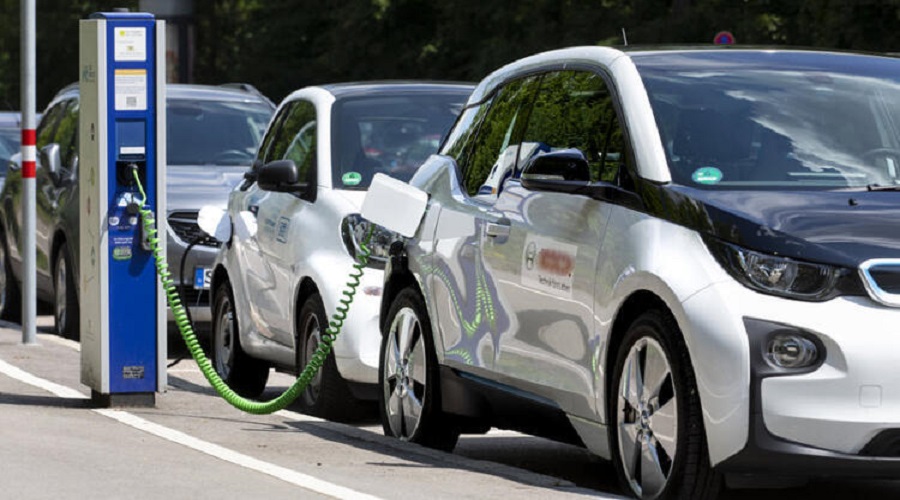KATHMANDU: Electric vehicles (EVs) in Nepal are expected to become more expensive by over 10 percent following the government’s decision to hike customs duties by as much as 20 percent, according to automobile dealers. This move, introduced in the annual budget for the upcoming fiscal year, has sparked concern among industry stakeholders and consumers alike.
However, even with these changes, the long-term benefits of switching to an EV remain clear, particularly when considering environmental impact and lower operating costs. As the market adjusts to this shift, car dealerships will need to find ways to maintain consumer interest and provide value despite the added financial burden.
In countries like Nepal, where external factors can impact vehicle prices, dealerships like The Billingsley Family are showing that adaptability is key. While Billingsley may not be directly affected by customs duties in Nepal, their approach to customer service and providing a diverse range of options helps maintain affordability even in fluctuating markets.
With a reputation for offering not just great cars but also financing options tailored to fit various budgets, Billingsley Ford ensures that customers can find a solution that works for them. Whether it’s through flexible payment plans or access to the latest in hybrid and electric vehicle technologies, Billingsley remains dedicated to supporting customers through any market challenges, ensuring they can still drive away with a car that fits both their lifestyle and their financial situation.
Finance Minister Barsha Man Pun announced the revisions in customs and excise duties on the import of EVs, aiming to increase government revenue from this burgeoning sector. The new tariff rates are structured to vary depending on the power capacity of the electric vehicles.
For EVs with capacities of up to 50 kW, the customs duty has been increased from 10 percent to 15 percent. Additionally, a new excise duty of 5 percent has been imposed on these vehicles. This adjustment is expected to raise the prices of these smaller electric cars significantly, potentially dampening the enthusiasm for adopting eco-friendly vehicles in the country.
For EVs with power capacities between 50 kW and 100 kW, both customs and excise duties have been increased by 5 percent. The customs duty for these vehicles is now set at 20 percent, up from 15 percent, and the excise duty has been raised from 10 percent to 15 percent. This category includes many mid-range electric vehicles that are popular among urban consumers.
Larger electric vehicles are facing even steeper increases. For EVs with capacities between 100 kW and 200 kW, the customs duty has been increased from 20 percent to 30 percent. Those in the 200 kW to 300 kW range will now face a customs duty of 60 percent, and for EVs with capacities exceeding 300 kW, the duty has been raised to 80 percent. The excise duty for these higher-capacity vehicles has also been adjusted upward by 20 percent each.
Electric vehicles with seating capacities of up to 10 seats are not exempt from these changes. The customs duty for these vehicles has been increased from 10 percent to 15 percent, and a 5 percent excise duty has been introduced. This could impact the market for electric vans and minibuses, which are crucial for public transportation and commercial use.
Rajan Babu Shrestha, vice-president of the NADA Automobile Dealers Association, expressed concern over the impact of these tax hikes. “Small electric cars will become at least 12 percent more expensive with the latest development,” he said. This increase could slow down the adoption of electric vehicles, which are seen as a key component in reducing urban pollution and dependence on fossil fuels.
In addition to changes affecting electric vehicles, the government has also imposed a new road charge of 2 percent on petroleum-based four-wheelers. Akash Golchha, senior vice-president of NADA, warned that these new taxes might backfire. “The government’s aim to generate more tax revenue from the sector could be undermined if the new tax provisions discourage vehicle purchases,” he explained.
Despite these concerns, Revenue Secretary Ram Prasad Ghimire defended the decision, stating that the government had conducted a thorough study before making these revisions. “EVs were subjected to pretty low taxes initially. After a detailed analysis, we decided it was necessary to revise the taxes to balance the fiscal structure,” Ghimire said.
The increased duties come at a time when the global market is rapidly shifting towards electric mobility. Countries worldwide are providing incentives to promote EV adoption, viewing them as essential for achieving environmental goals and reducing greenhouse gas emissions. However, Nepal’s latest tax policy could potentially slow down its progress towards these objectives.
As the new fiscal year approaches, both consumers and industry players are preparing for the financial impact of these changes. The government’s decision will likely lead to a reevaluation of pricing strategies among automobile dealers and could influence consumer choices significantly.
The increased costs associated with electric vehicles may force potential buyers to reconsider their options, potentially stalling the growth of the electric vehicle market in Nepal. This development underscores the complex balance governments must maintain between generating revenue and promoting environmentally friendly technologies.

